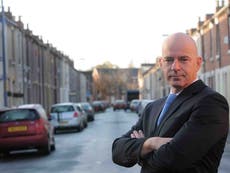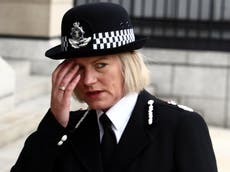Misogyny is a hate crime, and calling it by its name has immediately helped to make women's lives better
Our research showed that a police pilot in Nottinghamshire has had a host of positive effects. The Law Commission must now be bold in rolling it out across the country

I have witnessed first-hand the overwhelmingly positive effects created by the classification of misogyny as a hate crime. The pilot in Nottinghamshire has improved the everyday lives of women and girls and the Law Commission should now be bold in rolling it out across the country.
With my colleague Loretta Trickett, we investigated the impact of the policy change on victims, the police and members of the general public across Nottinghamshire.
Since 2016, residents have been able to report incidents to Nottinghamshire Police by dialling 111, with call handlers and police receiving dedicated training.
Seven other police forces have since followed suit. If a change in the law goes ahead, an offence such as sexual assault, if also deemed to be motivated by discrimination and prejudice toward the victim because she is a woman or girl, will then have the additional category of hate crime added on. It gives the legal system the power to impose longer sentences.
But it doesn’t end there. An important finding in our research was that victims who reported did so because the policy change sent a very clear message to them that they would be taken seriously if they came forward. This often outweighed the desire for a conviction.
Significant under-reporting of rape and other sexual crimes is well-documented, and Nottinghamshire Police were very clear to send a different message, that harassment, discrimination and assault of women and girls was not acceptable in today’s society.
Three-quarters of victims who reported said they were satisfied with the police response and all the victims said that they would report again, even if no conviction took place.
Misogyny hate crime often takes place on the street. It happens quickly, with victims unable to get clear descriptions of perpetrators, making convictions difficult. The policy is part of a broader socio-cultural shift that needs to take place to improve the safety, health and freedom of women and girls on our streets, in workplaces, schools, public spaces and in homes. If the ongoing Law Commission Review takes full advantage of this opportunity, it can help make this change happen.
Our research found that the term “misogyny” is often viewed as elitist, as too difficult to define and too exclusionary to men. Our recommendation to members of the Law Commission Review panels over the past few months has been to use “gender hate crime” instead.
This also overcomes one of the most frequent debates and criticisms of the policy, “what about misandry?” It is a term that includes men, although as we know from rates of reporting, this is a crime that disproportionately affects women.
When interviewing men of different ages and backgrounds their clear message was that they also want this behaviour to stop. They see it as perpetuated by a minority of men, particularly in groups. They too were tired of public displays of unacceptable, often illegal, “macho” behaviour.
They also did not realise the debilitating effect it had on the everyday lives of women in their own families until they discussed it with them, and how it impacts on their rights and freedoms every day – it is not acceptable to fear walking down the street on your own, unable to go into many public spaces or use public transport alone through fear of harassment.
Our research captured stories of girls being sexually harassed walking to school in uniform, new mothers being propositioned whilst out with newborn babies and young women regularly assaulted in nightclubs and bars, viewing this as part of a “normal” night out, along with other serious cases of physical and sexual assault, taking place in the workplace, in schools and universities and a range of other public spaces. Gender-based violence and harassment has to be eradicated. The Law Commission has a real possibility here to help make this happen.
Louise Mullany is a professor of sociolinguistics at the University of Nottingham.






Join our commenting forum
Join thought-provoking conversations, follow other Independent readers and see their replies